JUMP TO: IMPORTANCE OF THE STATEMENT – Bannerman v White | Couchman v Hill – SKILL OR KNOWLEDGE –Oscar Chess Ltd v Williams | Dick Bentley Productions v Harold Smith Motors – ACCEPTING RESPONSIBILITY – Schawel v Reade | Ecay v Godfrey – TIMING – Routledge v Mckay – WRITTEN CONTRACT – Henderson v Arthur | J Evans v Andrea Merzario | Inntrepreneur v East Crown | City and Westminster Properties v Mudd
TERM OR MERE REPRESENTATION
Many statements are made by the parties before a contract is completed. These can be divided into terms and mere representations.
TERMS
These are statements that the parties intend to be contractually binding.
An unperformed term is a breach of contract. The innocent party can choice whether to terminate the contract and claim damages, or carry on with the contract and claim damages.
|
MERE REPRESENTATIONS
These are statements that the parties do not intend to be binding. They merely induced the parties into the contract.
If a representation turns out to be false a party can bring a claim for damages in Misrepresentation but they cannot terminate the contract.
|
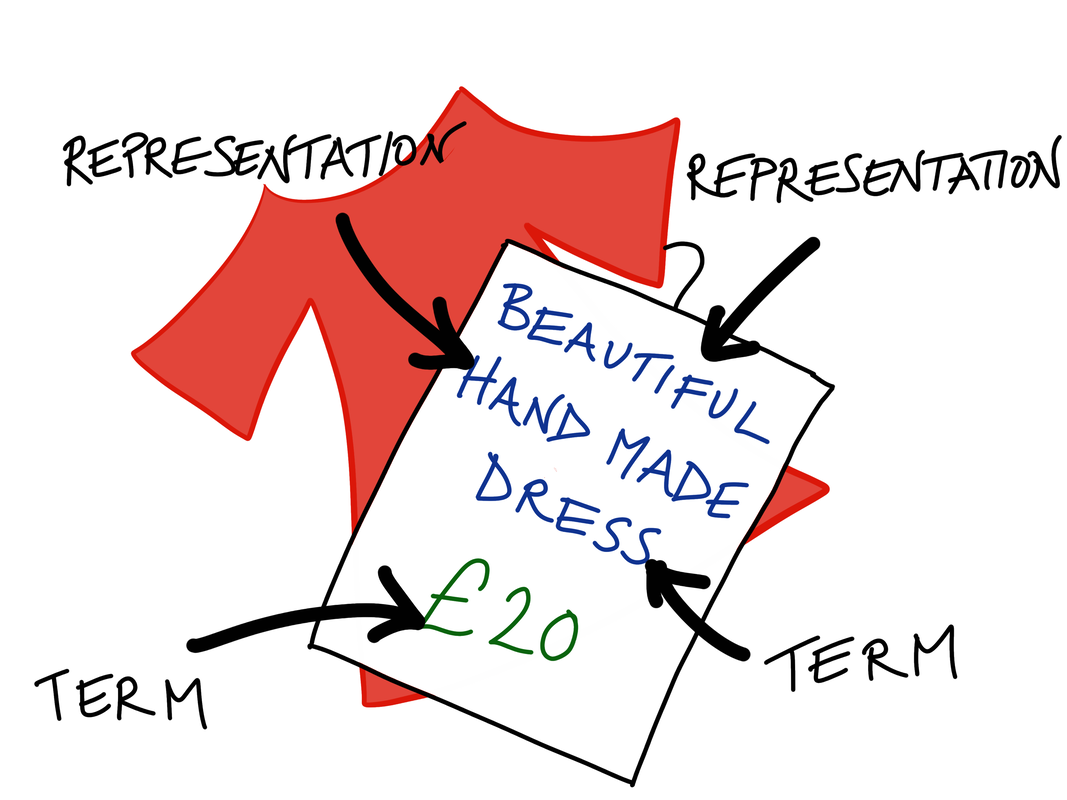
To ascertain whether a statement is a term or a representation the court must decide whether the maker of the statement intended to be bound by the statement. This is an objective test; what would the reasonable man believe to be the intention of the parties taking into account all of the circumstances?
There are several factors that the court will take into consideration when considering this question;
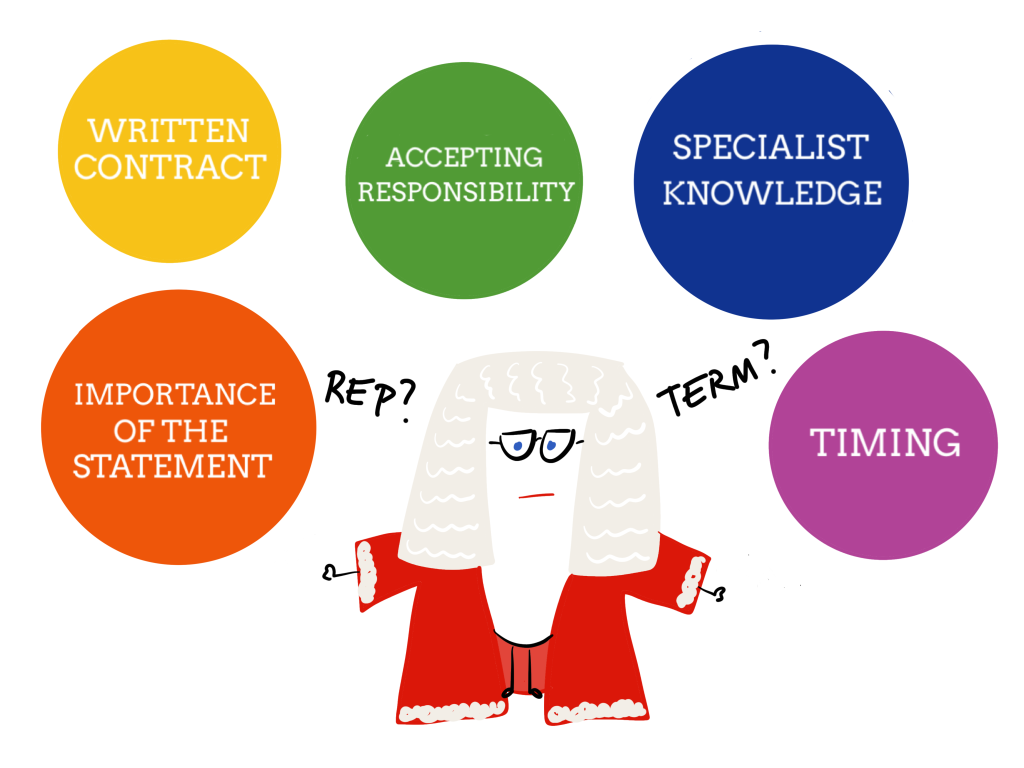
IMPORTANCE OF THE STATEMENT
When a statement is of such importance to the overall contract that one party would not have contracted without it, and both parties are (or should be) aware of its importance, then it will be considered a term rather than a representation (Bannerman v White (1861) (Court of Common Pleas)).
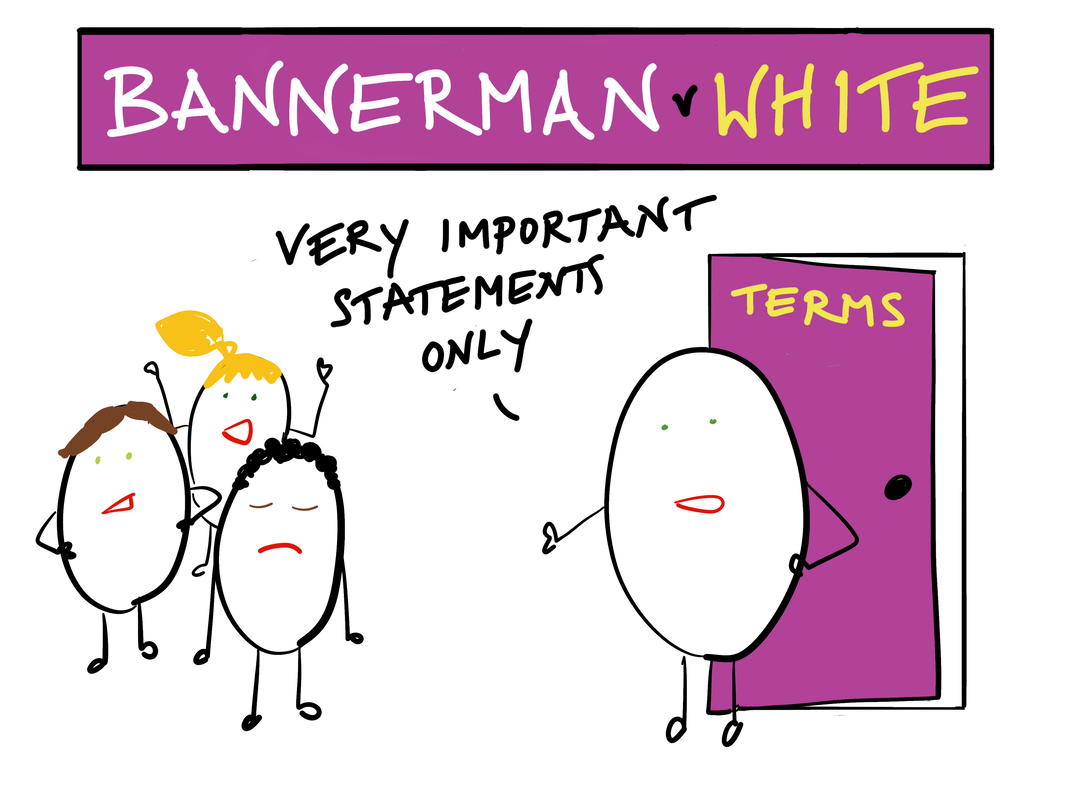
White bought hops by sample from Bannerman for beer making. White made it known that he would not buy hops treated with sulphur as this would ruin the beer. Bannerman promised White that his hops had not been treated with sulphur but when White received the goods he discovered that they had been. The importance of this statement to White, and the fact that Bannerman had been aware of its importance, meant that it was a term and not a representation. The jury found that the buyer had entered into the contract entirely on the faith of that statement, therefore it amounted to a term of the contract and the buyer was entitled to repudiate the contract.
In Couchman v Hill (1947) (CoA) a heifer (female cow) was put up for sale at auction. The claimant asked the defendant and the auctioneers whether the heifer was pregnant with a calf, stating that he would not be interested if she was. He was told that she was not. However, after the heifer was sold, she died from a miscarriage. The claimant brought an action for breach of contract. The court found that the statement about whether the heifer was pregnant was a warranty and therefore a term of the contract because of its importance. The contract had been breached and the claimant could recover damages.
CHECK OUT OUR SHOP FOR LAW FLASHCARDS | MIND MAPS | MUGS
SPECIALIST KNOWLEDGE OR SKILL
Any specialist knowledge or skill of the person making the statement will be taken into consideration. Compare the two cases below…
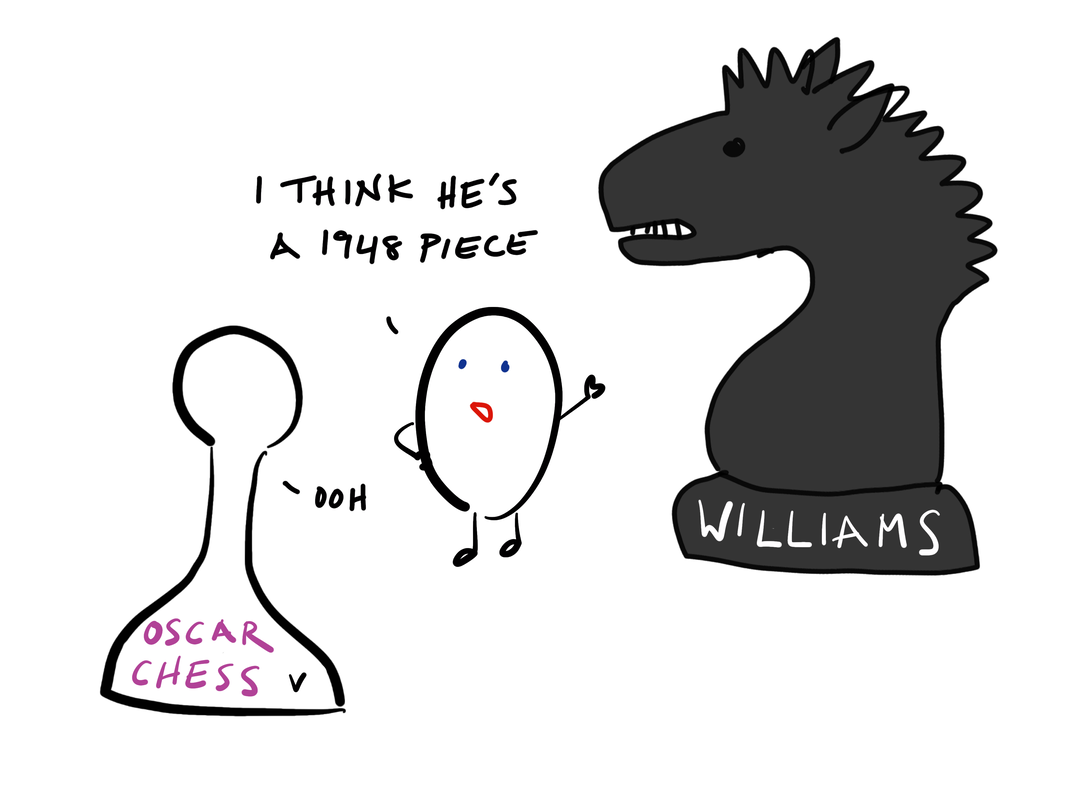
In Oscar Chess Ltd v Williams (1957) (CoA) Oscar Chess bought a car from a private seller, Williams, who sold the car as a 1948 model when in fact it was a 1939 model worth much less. This was considered a mere representation because Williams had no specialist knowledge, he had simply relied upon an incorrect registration document, whereas the buyer was a specialist car dealer who could have noticed the mistake.
|
In Dick Bentley Productions v Harold Smith Motors (1965) (CoA) when Dick Bentley Productions bought a car from Harold Smith Motors it was sold as only having done 20,000 miles. This was untrue. It was held to be a term of the contract because Harold Smith Motors had specialist knowledge as a car salesmen and could, or should, have known that this fact was wrong.
|
ACCEPTING RESPONSIBILITY
If the maker of the statement takes responsibility for the truth of the statement then it is more likely to be considered a term. Compare these two cases…
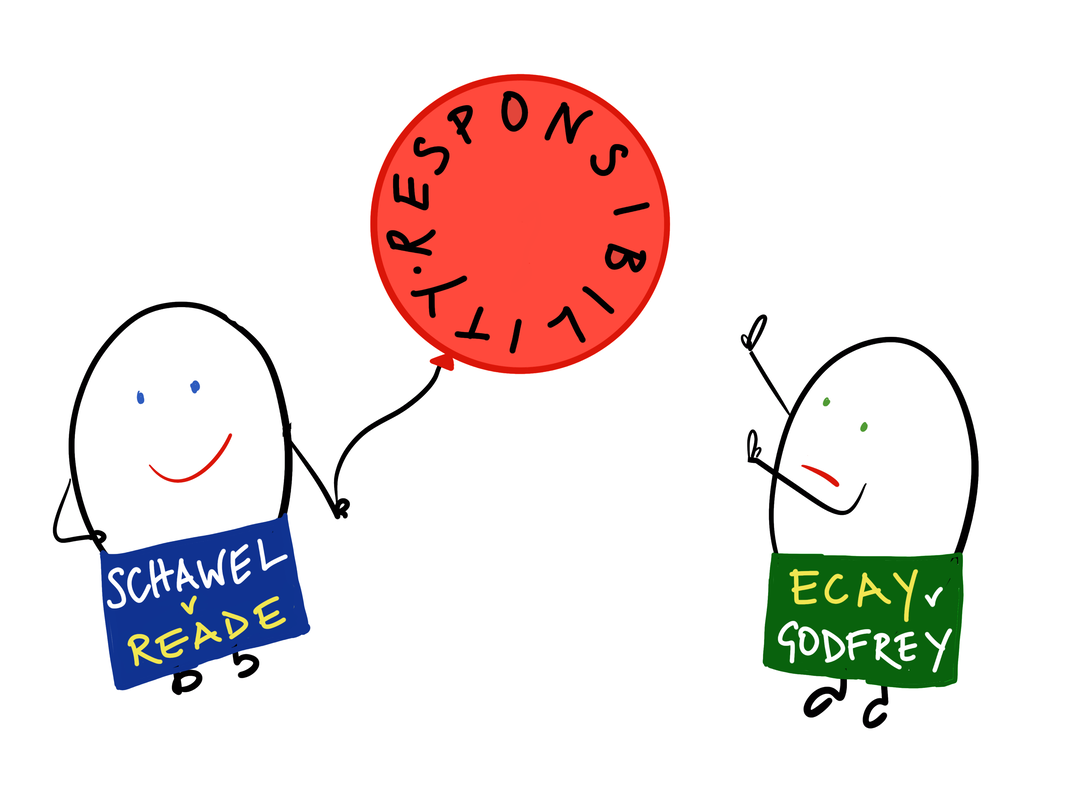
|
In Schawel v Reade (1913) Schawel wanted to buy a horse from Reade for breeding. Whilst Schawel was examining the horse Reade assured him that the examination was unnecessary and the horse was fit for purpose. By doing this Reade took responsibility for the quality of the horse and it was therefore taken as a term and not a mere representation.
|
In Ecay v Godfrey (1947) (HC) Godfrey sold a boat to Ecay saying that he thought the boat was probably sound but that Ecay should get a survey to check. This demonstrated a lack of responsibility for the truth of the statement of quality by Godfrey and was therefore a mere representation.
|
TIMING OF THE STATEMENT
The amount of time between the statement and the formation of the contract can also be important. The longer the gap between the two the less likely it is to be a term (Routledge v Mckay (1954) (CoA)).

Routledge bought a 1930 Douglas motorcycle from Mckay, which had been reconditioned and sold a few times previously. The registration documents falsely stated that it was a 1941 model, as a previous owner had earlier modified the bike and had wrongly registered it as a 1941 model. The court found that the false information about the year in the logbook was merely a representation. McKay was not the originator of the false statement. Routledge could sue the original wrongdoer in fraud, but he could not sue innocent people in between who merely passed on a statement which was in the registration book. There had been a significant lapse of time since the original misrepresentation was made.
WRITTEN CONTRACT
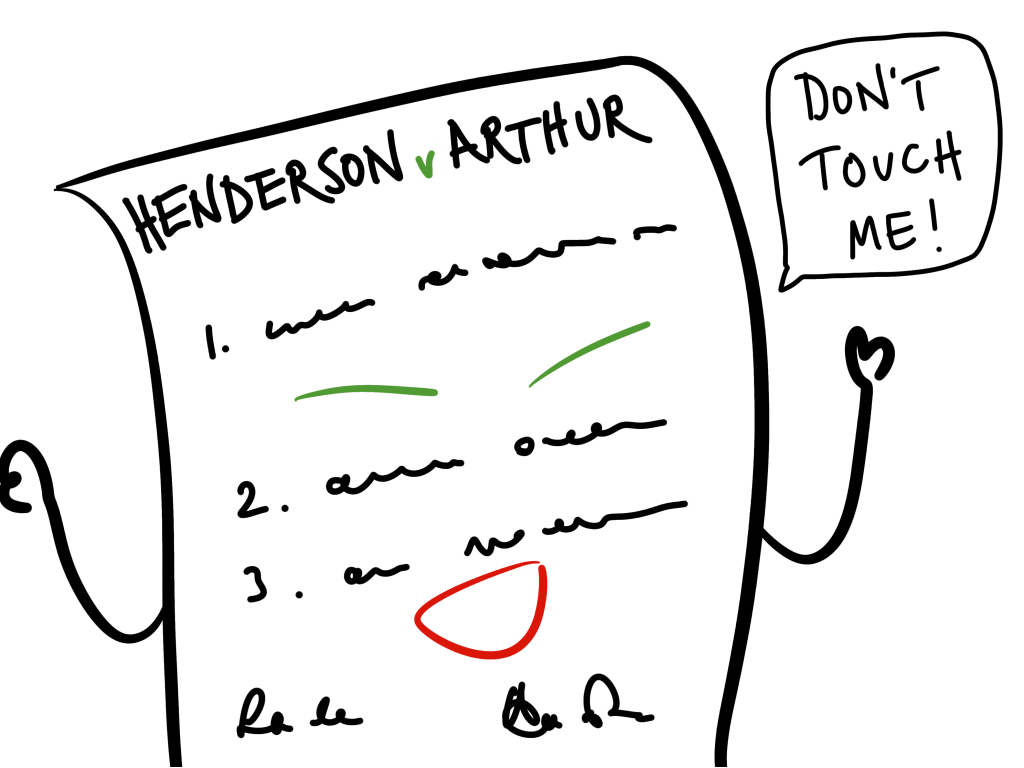
The Parole Evidence Rule states that if a contract is wholly in writing then the terms in that document are final and the parties cannot submit evidence to ‘add to, vary or contradict that writing’ (Henderson v Arthur (1907)). This applies to express terms only.
However, evidence can be submitted to prove that the parties intended an oral term to be part of the contract. If this is the case then the Parole Evidence Rule does not apply (J Evans v Andrea Merzario (1976) (CoA)).
If the contract is both oral and written and the statement has been included in the written document it is more likely to be a term, see Routledge v Mckay.
Parties can enforce the Parole Evidence Rule by inserting an entire agreement clause into their contract that states that the written document contains the entire agreement (Inntrepreneur v East Crown (2000) (HC)). The courts can also label an oral promise as a separate collateral contract to a written contract to circumvent the Parole Evidence Rule (City and Westminster Properties v Mudd (1959) (HC)).








